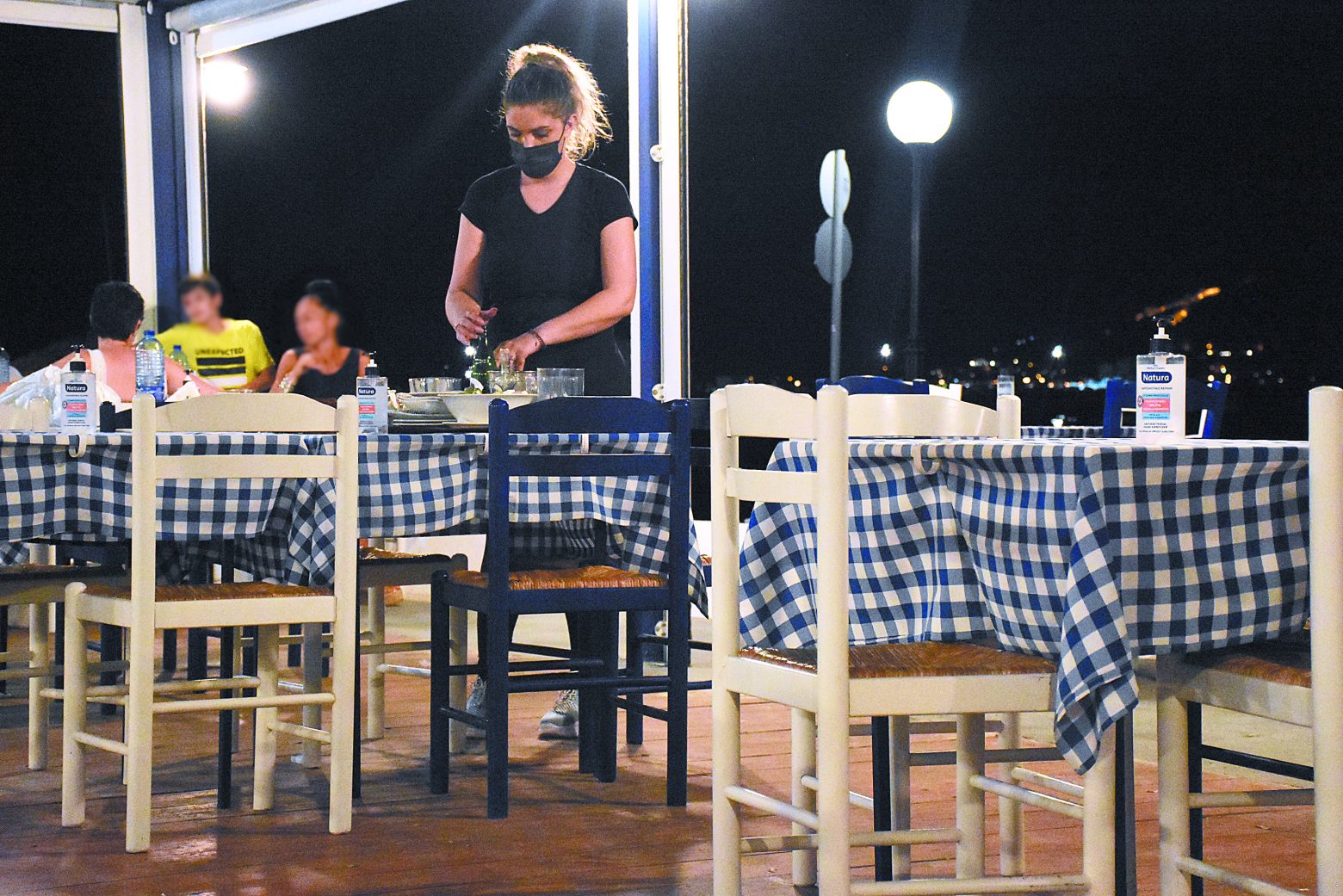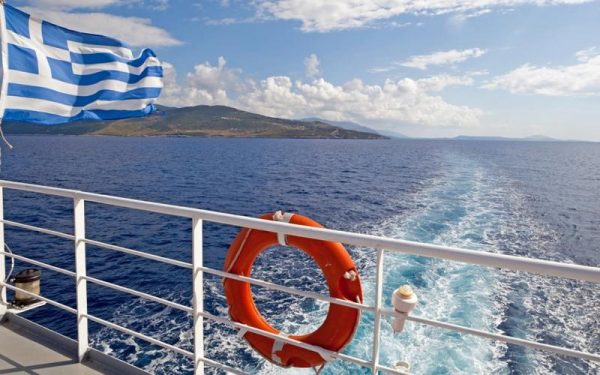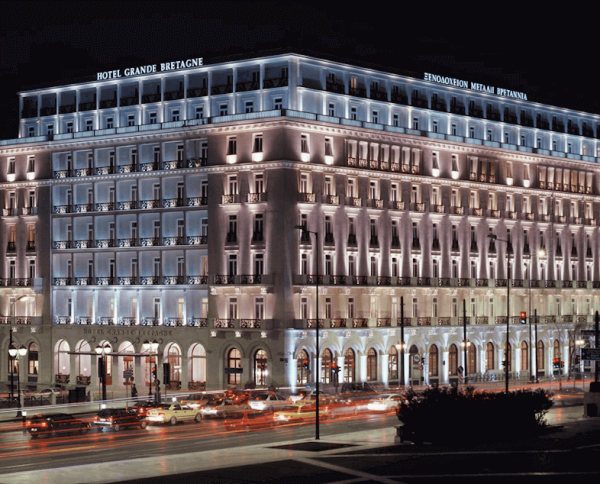
Low consumption, increased operating costs, uncertainty and impending (new) price increases are foreseen for the wider hospitality and catering sector (HORECA), with professional employees forming an Alliance to advance their common demands.
Empty tables and price increases
One in two entrepreneurs of the restaurant industry is preparing to proceed with increases, said the president of the Panhellenic Federation of Restaurants and Related Professions (POESE) Mr. George Kavvathas, revealing the data of the new semi-annual report of Institute of Small Enterprises of GSEVEE.
“The data show that in the second half of 2021, energy costs doubled and raw material costs increased by 44%,” he said. In the past, the vast majority of catering entrepreneurs have kept prices down, Mr. Kavvathas pointed out, as “on empty tables you can not proceed with increases”, however this can not continue.
In terms of consumption, the president of POESE told the OT that since the beginning of the year the reduction is 40-50%, while the daily revenue of stores falls by up to 80%. He added that the lost turnover can not be replaced, emphasizing that now there is a direct question of business survival.
How much will the prices in hotels increase
The data from the tourism sector are also worrying, although “nothing has been lost”, as the president of the Panhellenic Hoteliers Federation (POX), Mr. Grigoris Tassios, said during yesterday’s press conference for the presentation of the “I Support HORECA” Alliance.
At the moment, bookings in Greek hotels have been reduced by one tenth due to the war in Ukraine, with the exception of the British who do not seem to be afraid of anything, said the president of POX.
Price increases are imminent in the case of hotels especially in individual bookings, as the prices for organized bookings from last year have not changed.
Mr. Tassios even said that the increases should be kept to a single-digit percentage, even if high, because Greek tourism will be in danger of losing out on the recovery of the Turkish market. For the time being, he did not estimate that an average increase of 5 to 6% is in the pipeline for organized contracts.
The financial footprint of the industry
The catering and hospitality sectors (HORECA) are the most dynamic sector of the Greek economy. According to the analysis and estimates of Foundation for Economic & Industrial Research – IOBE for 2021 – based on the data of the National Accounts – the sectors collectively contribute 9.8 billion euros worth of Value Added , which corresponds to more than 5.5% of the country’s GDP, while 112,000 companies operating in the sector generate approximately 552,000 direct jobs, which correspond to 11.9% of employment in Greece. Catering and hospitality account for 3.6 billion euros in salaries and contributions, as well as taxes amounting to 1.181 billion euros, an amount that corresponds to 2.5% of the state tax revenues. During the multi-year economic crisis, the HORECA sector decisively supported the Greek economy and employment. However, today it is facing unprecedented shocks due to the energy crisis, the long-term lockdown and other measures to deal with the Covid-19 pandemic.
The members of the Alliance
The Alliance includes the Panhellenic Federation of Hoteliers (POX), the Panhellenic Federation of Restaurants & Related Professions (POESE), the Association of Alcoholic Beverage Companies (ENEAP), the Association of Greek Producers of Spirits and Alcoholic Beverages, Greek Bartenders Association and the Athens Bar Show.
Alliance suggestions
With the main aim of promoting the systematic dialogue at national level, the allied bodies proceeded to the drafting of a Charter of Common Positions and Commitments for the Sustainable Development of the wider hospitality and catering sector in Greece.
Through the Charter, the Alliance proposes:
1. Restoration – reduction of VAT on accommodation to 6% – as was the case until 2015 – or otherwise harmonization with the average of EU countries, with the aim of strengthening competitiveness. Indicatively, the VAT on accommodation in Cyprus amounts to 9%, in Portugal to 6%, to Spain to 10%, to Italy to 10% and to Turkey to 8%.
2. Reduction of VAT on catering to 6% in order, among other things, to reduce the negative effects of inflation and the particularly high costs caused mainly by the excessive increase in energy prices.
3. Adjustment of the Excise Tax of alcoholic beverages in the EU average, taking a closer look at the relationship between taxation and the income of Greek citizens, as well as in response to a) the wave of price increases and b) tax evasion and illegal trade reinforced by high taxation. Today, the Excise Tax rate is the highest in the EU, in relation to per capita income.
4. Providing compensatory measures to catering and hotel businesses against the effects of pandemic measures e.g. extension in the repayment of repayable advances for one semester and subsidy of employer contributions for restaurants for the semester for the semester 11-2021 to 4-2022 with a scale according to the drop in turnover in relation to 2019-2020.
5. Immediate issuance of invitations for the financial programs that have already been announced and aim at adapting our companies to the requirements of the new environmental legislation (“Save” program, etc.).
6. Consolidation of competition in accommodation. Adoption of a legal framework that will set specific rules in relation to the operation of short-term rental and provision of obligations similar to those applicable to legal tourist accommodation. Identifying illegal accommodation and enforcing the penalties provided.
Latest News

DM Dendias: We talk With Turkey But We Always Bring Up Their Unacceptable Positions
Second and last day of closely watched conference, entitled 'Metapolitefsi 1974-2024: 50 Years of Greek Foreign Policy', also included appearances by PM Mitsotakis, Ex-PM Tsipras and PASOK leader Nikos Androulakis, among others

Rhodes Airport Tops Fraport Greece’s Regional Airports in 2024 Performance
According to Fraport's data, more than 35 million passengers (specifically 35.2 million) were handled by Fraport-managed airports during the 11 months.

European Central Bank Cuts Interest Rates by 25 Basis Points
It is the fourth cut of interest rates by Europe’s central bank, a move expected by the markets and financial analysts leading to the rate settling at 3%.

Airbnb: New Measures Add €600 in Extra Costs for Property Owners
Property managers face an immediate administrative fine of 5,000 euros if access to the inspected property is denied or any of the specified requirements are not met.

Economist: Greece Included in the Best Performing Economies in 2024
Meanwhile, Northern European countries disappoint, with sluggish performances from the United Kingdom and Germany.

EasyJet Expands Its Routes from Athens
The airline’s two new routes will be to London Luton and Alicante and they will commence in summer 2025.

Capital Link Forum Highlights Greece’s Economic Resurgence; Honors BoG Gov Stournaras
Capital Link Hellenic Leadership Award recipient, Bank of Greece Gov. Yannis Stournaras, an ex-FinMin, was lauded for his pivotal role during Greece’s economic recovery

Tourist Spending in Greece Up by 14%, Visa Card Analysis Shows
Greece’s capital Athens emerged as the most popular destination, recording a 17% increase in transactions with Visa cards, surpassing even the cosmopolitan island of Mykonos.

Inflation in Greece Unchanged at 2.4% in Nov. 2024
The general consumer price index (CPI) posted a 0.4% decrease in November compared to the previous month

2024 Christmas Holidays: Extended Shop Hours Schedule
The 2024 Christmas Holidays extended shop hours schedule commences on Thursday, December 12 and runs until the end of the year.

![Φυσικό αέριο: Δυναμικό come back του LNG στην Ελλάδα [γραφήματα]](https://www.ot.gr/wp-content/uploads/2023/01/OT_naturalgas-90x90.jpeg)












![Fraport: Πάνω από 35 εκατ. επιβάτες στα αεροδρόμια το 11μηνο – Πτώση στη Μύκονο [πίνακας]](https://www.ot.gr/wp-content/uploads/2022/06/fraport-90x90.jpg)


















![Φυσικό αέριο: Δυναμικό come back του LNG στην Ελλάδα [γραφήματα]](https://www.ot.gr/wp-content/uploads/2023/01/OT_naturalgas-600x474.jpeg)








 Αριθμός Πιστοποίησης Μ.Η.Τ.232433
Αριθμός Πιστοποίησης Μ.Η.Τ.232433